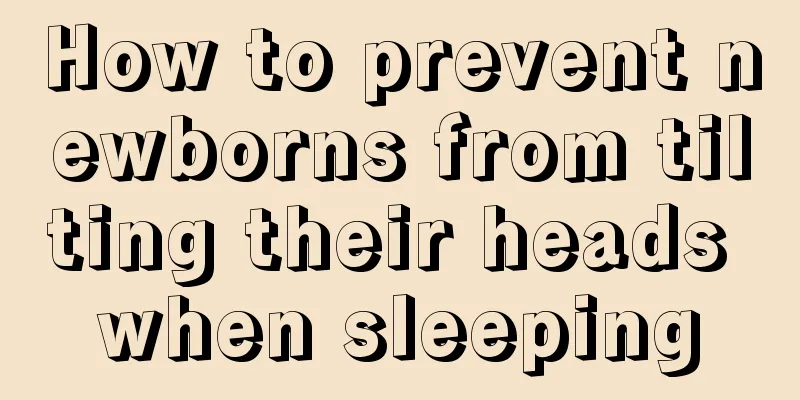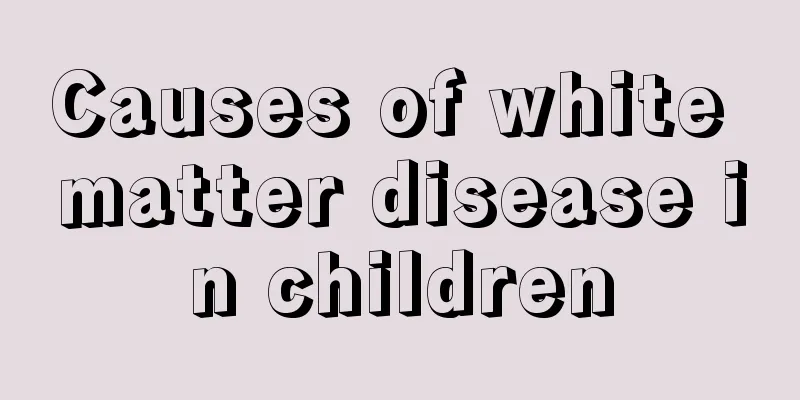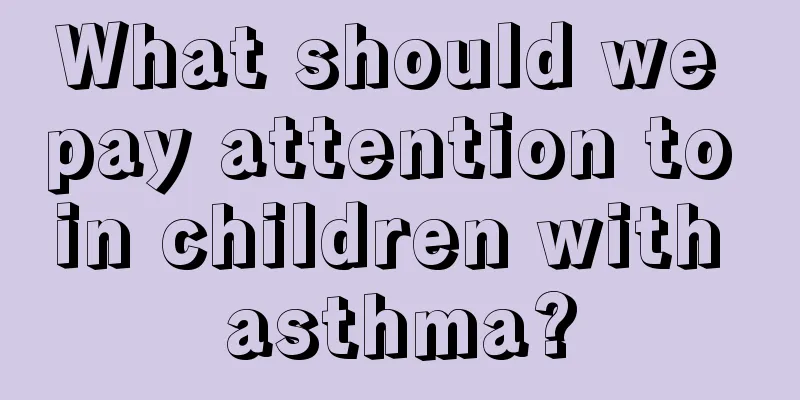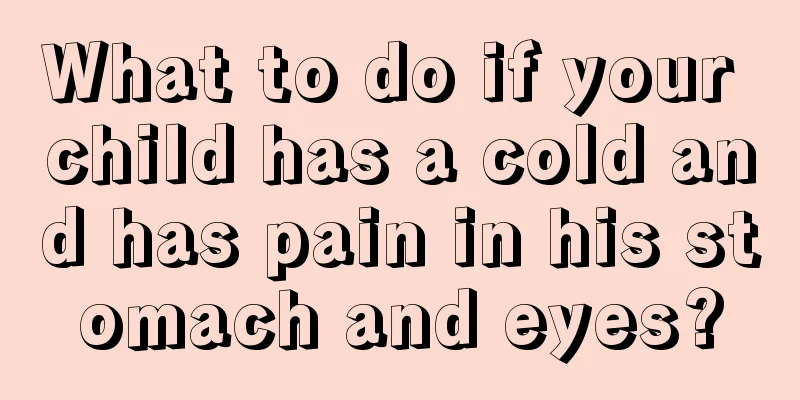What are the symptoms of hunger diarrhea in babies?
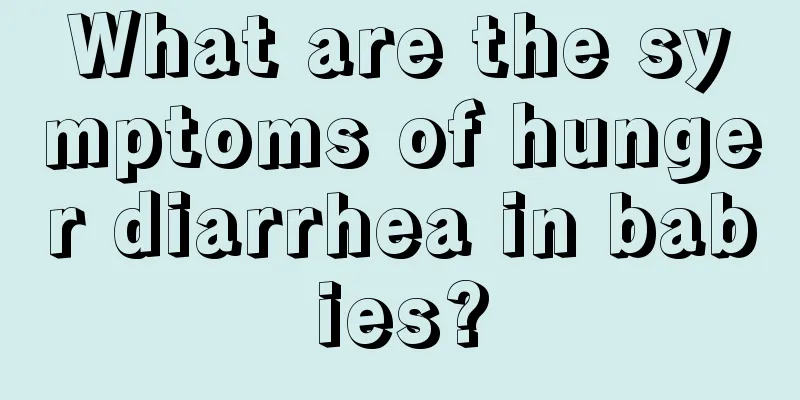
|
What are the symptoms of hunger diarrhea in babies? Diarrhea is a symptom that we often encounter in our daily life. Baby diarrhea, also known as indigestion, is a clinical syndrome caused by different causes, mainly occurring in infants under 2 years old. There are many reasons for baby diarrhea, and diarrhea is also very harmful to the baby's health. Therefore, parents should promptly detect whether their baby has diarrhea symptoms so that they can receive early treatment. So, what are the symptoms of hunger diarrhea in babies? Symptoms of hunger diarrhea Everyone can understand that a child may have diarrhea due to eating too much. As the saying goes, "The more you eat, the more you poop." Hunger usually means eating less, so how can it cause diarrhea? You may find it novel and hard to accept. Please see an example. The child is more than 6 months old. Feed with milk immediately after birth. From 3 months onwards, I added some cake powder to the milk, and the frequency of bowel movements increased slightly. My parents were afraid that it was caused by adding cake powder, so they removed the cake powder and fed my baby with milk alone. Feed 5 times a day, each time with 120 ml of milk. Later, the frequency of bowel movements increased to 5-6 times a day, with less feces and more mucus in the stool, which was green in color and foamy. The child has a good appetite, but often cries before feeding time. Because the child has frequent bowel movements, his parents think it is indigestion, so they dare not increase the amount of milk or add complementary foods, and continue to feed him milk as usual. The child is getting thinner and thinner. After examination by a doctor, it was believed that the diarrhea was caused by hunger. Supplementary food was added in small amounts, but the frequency of bowel movements did not increase. Under close observation, continue to add complementary food quality. After more than half a month, the frequency of bowel movements was reduced to 2-3 times, the nature of the bowel movements improved, and the child stopped crying. The reason why hunger causes diarrhea may be due to increased intestinal motility, resulting in more frequent bowel movements. Considering that the child's diarrhea may be caused by hunger, you can start with small amounts and increase the amount of food. If the frequency of bowel movements does not increase after the food intake increases, you can continue to increase the dosage. Even if you have 1-2 more bowel movements, you can still stick to it. After 3-4 days of observation, if the frequency of bowel movements does not increase, you can increase the dosage. Just observe and increase the dosage until the diet meets the baby's needs. If a child has hunger diarrhea, the symptoms of diarrhea can be completely controlled if the parents handle it properly: 1. Adjust the diet and feed with yogurt. 2. In the process of adjusting the diet, it is necessary to increase the quantity and improve the quality of food in a timely manner as the diarrhea improves. For children who are not adequately breastfed, milk or other milk substitutes should be added in time. For babies who are bottle-fed, the milk powder cannot be diluted too much. Generally, the ratio of milk powder to water should be 1:4 by volume and 1:8 by weight (restored to the concentration of fresh milk). 3. Pay attention to regulating the spleen and stomach, you can use some ginseng, scutellaria and white atractylodes powder. Warm reminder: Early detection and early treatment of baby hunger diarrhea are crucial. For baby hunger diarrhea, we can combine the baby’s medical needs and implement “one-to-one” expert cluster care to fully protect the baby’s health. Baby hunger diarrhea is a common and frequently occurring disease in infancy. In addition to intestinal viral and bacterial infections, hunger diarrhea may also be caused by insufficient feeding, and this is also the type that is most easily overlooked. |
<<: What's the matter with the little red spots on my face that itch a little?
>>: What are the symptoms of iron deficiency in babies?
Recommend
How to deal with children's rhinitis
Rhinitis is difficult to treat, and most people c...
What to do if your newborn has a stuffy nose
Many people know that if their nose is blocked, i...
What is the matter with children's urine
If a child has difficulty urinating, parents shou...
What causes a child's nosebleed?
It is quite worrying when a child has a nosebleed...
What are the symptoms of mycoplasma infection in children?
Normal mycoplasma infection is transmitted throug...
What should I do if my baby has a cough and runny nose?
If your baby has a little cough and runny nose, p...
Fever after taking group A meningococcal vaccine
After a baby is born, he or she needs to receive ...
How to supplement iron deficiency in babies
If parents find that their babies are often cryin...
The dangers of weaning at three months
For newborn babies, breast milk is the best food....
What to do if your child has tonsil suppuration
Children have relatively low resistance and immun...
What to do if your child keeps picking his belly button
When humans are still in the mother's belly, ...
What should I do if my baby has a fever and convulsions?
It is normal for parents to worry about their chi...
What should I do if my child has a low-grade fever?
1. Massaging acupoints for a low fever is very un...
The dangers of hip dysplasia in babies
It is said that babies are the bridge of emotiona...
What to do if a child has worms in his anus
If there are worms in a child's anus, it mean...


